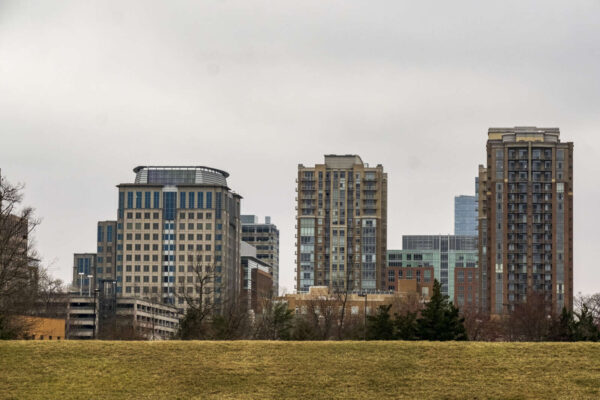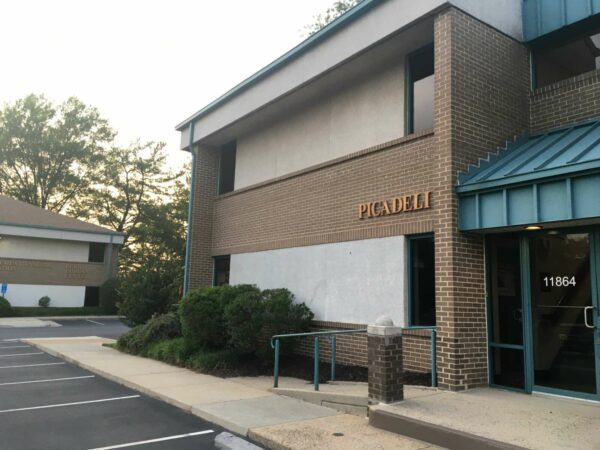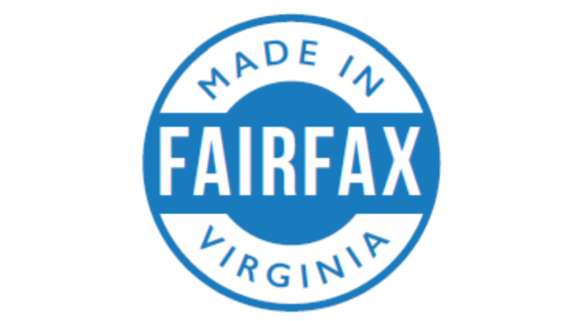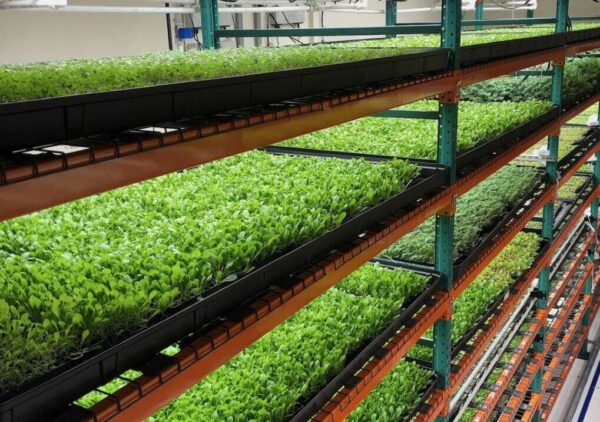A new Herndon family-owned Pakistani breakfast restaurant may be the only one of its kind in Virginia and, perhaps, even the country, according to its co-owner.
Desi Breakfast Club on 3065 Centreville Road might just be the only diner that serves exclusively Pakistani breakfast all day, says co-owner Malik Waleed Ahmad.
“I have customers who come in, and they’re like ‘we go to Dubai and the Middle East and there’s breakfast places, but we’ve been looking here and there’s nothing,'” said Ahmad, who owns the restaurant with his father Zaheer Ahmed and brother Fahad Qadeer.
The family opened Desi Breakfast Club (in Udru, “Desi” means “of local origin”) in early June as a solution to their own breakfast-searching woes.
They also own Charcoal Chicken in Chantilly. After closing late at night, they often would go in search of breakfast, and there would only be one option: the IHOP next door.
“We saw the demand for a Pakistani restaurant to do breakfast,” Ahmad said. “And on weekends, brunch.”
They sensed a particularly acute need for this specific niche to be filled in the Town of Herndon, which has a population that’s about 18.5% Asian, as of 2019, with a growing number of residents from the South Asian subcontinent.
“Indian, Pakistani, Nepali, Bangladeshi…our politics, our cultures, they all may divide us,” Ahmad said. “But food is one thing that unites us all. And we all eat the same food.”
He says because word has been getting around the local community, the restaurant is constantly crowded on weekends with people traveling from across the region to eat there.
In fact, Desi Breakfast Club is currently reservations-only on Saturdays and Sundays.
The menu consists of a mix of stews, flaky breads, samosas, fritters, eggs, and sweets like halwah (a sesame candy).
“The star of the show is Halwah Puri,” Ahmad said, referring to a dish that consists of fry bread, halwah, spiced potatoes, and chickpeas. “It’s the most popular dish. It outsells everything else by a hundred percent.”
All the recipes are ones his father brought from Pakistan when the whole family moved to Herndon 18 years ago. Cooking was always his father’s “hobby,” but, in 2010, he told his family he wanted to open a restaurant. That’s when Charcoal Chicken was born.
“In the beginning, when we first came to America, the restaurant was a means to an end,” Ahmad said. “But it’s a dream come true…We are building something.”
Ahmad, now 28, has lived in Herndon for nearly two decades. He says he grew up eating all of the dishes being served at Desi Breakfast Club, something that he likely has in common with others.
“Back home, every mom [and dad] makes the best food,” he said. “These are my family’s recipes, but I’m sure there are other people who eat this exact same food. They just make it a little differently in their home.”
Every Monday, the restaurant is closed so the family can mix spices and prepare food together. His father helps his brother prepare and manage the kitchen, while Ahmad works in front of the house, interacting with customers.
“It’s rewarding…I get to meet new people every single day. I get to feed people and just see happy faces,” he said. “I even put in 12, 13 hours daily, but I don’t get tired.”
Ahmad tells Reston Now that he encourages everyone to come by, regardless of whether they’ve tried Pakistani breakfast food before, so he can share a little piece of who he is with others.
“When you come eat with us, it’s like you’re eating at home. Our home,” Ahmad said. “I’m happy that all the food that I ate growing up and enjoyed, I get to share with everyone and my community.”
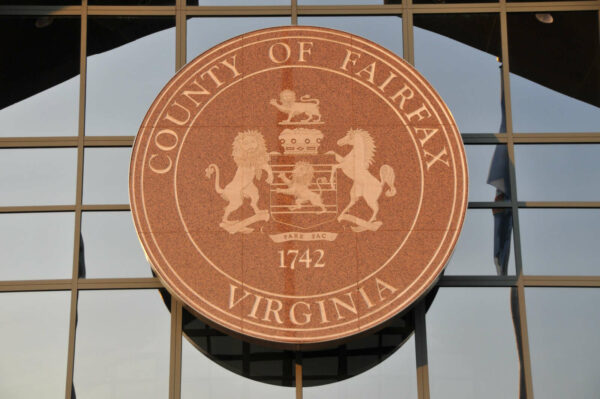
Fairfax County will conduct a “comprehensive review” of the county’s response to the COVID-19 pandemic.
At today’s (July 13) Board of Supervisors meeting, Chairman Jeff McKay proposed as a board matter to have County Executive Bryan Hill review how county agencies responded to the challenges of the pandemic, how operations were affected, and how operational changes impacted the community.
The review will take place in two parts. The board directed staff to deliver a report with conclusions, recommendations, and areas of improvement in February 2022, and a follow-up is anticipated since the pandemic is still ongoing.
The motion passed unanimously.
“We did an amazing job [dealing with the pandemic],” McKay said, but he acknowledged that a review is needed since “there’s much to be learned about the county’s response and how we can improve upon that for the future.”
McKay also noted that a review is already essentially under way, but this formalizes the process and sets a deadline on it.
Hunter Mill District Supervisor Walter Alcorn agreed with the effort and asked the county executive not to pull any punches.
“I ask the county executive not to shy away from identifying challenges…[particularly] those in the labor market that were attributed to the pandemic and what happened after,” Alcorn said.
As noted in McKay’s comments, more than 75% of Fairfax Health District residents 18 years or older have received at least one vaccine shot. That’s above both national and state averages.
However, the county continues to face some challenges in convincing those who are still hesitant to get vaccinated.
When it comes to addressing COVID-19’s economic impact, the county has provided assistance with rent, food, and other basic needs to more than 10,000 households and helped get permanent housing for 400 individuals who were experiencing homelessness when the pandemic began, according to McKay’s board matter.
The county has also distributed more than $52 million in small business relief funding through the RISE program and is offering $25 million in their PIVOT program.
While half of the RISE grants went to minority-owned businesses, those particular businesses still suffered “acutely” during the pandemic. What’s more, the Northern Virginia Black Chamber of Commerce recently called out the county for their belief that they were neglected in the development of some of the grant programs.
McKay said that getting a comprehensive report on Fairfax County’s COVID-19 response will help the county government “ensure we maintain the level of service and functionality our community expects” in any future large-scale crisis or emergency.
via Machvee/Flickr
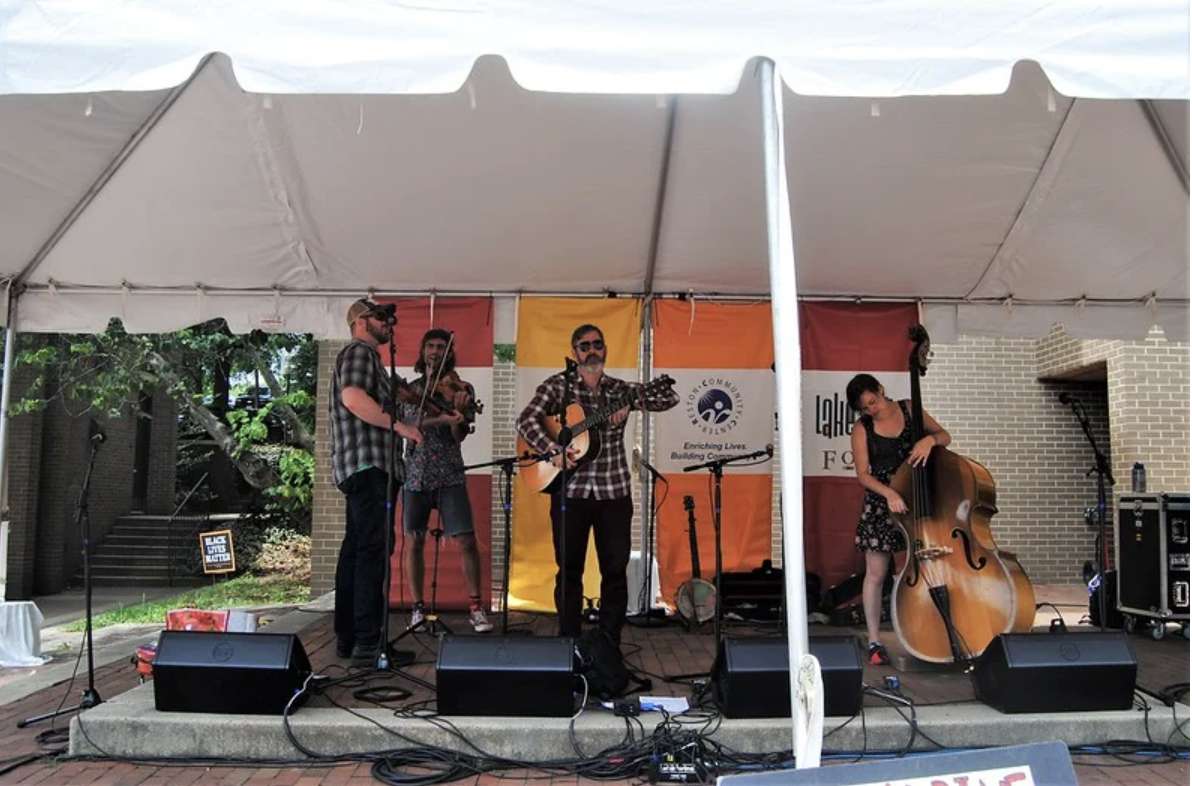
Herndon Elementary to Host Vaccine Clinic Today — The Fairfax County Health Department will provide COVID-19 vaccinations at Herndon Elementary School from 3:30-7 p.m. today (Monday), as the county urges adolescents to get vaccinated in time for the upcoming school year. Appointments can be made for individuals 12 and older through the Vaccine Administration Management System. [FCHD]
Thomas Jefferson HS PTSA Put on Probation — The Virginia Parent Teacher Association has reinstated the president of Thomas Jefferson High School for Science and Technology’s Parent Teacher Student Association after she was ousted by opponents of admissions changes at the magnet school. The organization stopped short of revoking the PTSA’s charter in response to parents’ complaints about its leadership. [WTOP]
Virginia Will Support Small Businesses with Relief Funds — “Virginia Gov. Ralph Northam wants to use $353 million of the $4.3 billion in American Rescue Plan funds available to the state to help small businesses and industries hardest-hit by the COVID-19 pandemic…The General Assembly will oversee the allocation of the funds during a special session.” [Patch]
How Reston Residents Can Help Pollinators — Walker Nature Center manager Katie Shaw explains how bees and other pollinators support local ecosystems by fertilizing plants, but their populations are declining due to habitat loss, pesticides, climate change, and invasive species. Reston property owners can host bee hives if they get approval from Reston Association. [RA/YouTube]
Photo via vantagehill/Flickr

PIVOT Grant Application Deadline Today — This is the last day for hotels, restaurants, and other local businesses affected by the pandemic to apply for COVID-19 relief funding from Fairfax County’s PIVOT grant program. The application portal will close at 11:59 p.m. [Fairfax County Government]
Pfizer Seeks Approval for COVID-19 Vaccine Booster — Pfizer will request authorization from the Food and Drug Administration for a third dose of its COVID-19 vaccine, which it says could boost immunity and help ward off variants if delivered within 12 months. Research suggests the Pfizer shot and other widely used COVID-19 vaccines offer strong protection against the highly contagious delta variant. [Associated Press/WTOP]
Expansion Proposed for Dulles Airport — The Metropolitan Washington Airports Authority is seeking environmental approval from Virginia to potentially build a new three-story, 535,000 square-foot concourse at Dulles International Airport to support United Airlines. The planned facilities would revamp a “temporary” hub that has been in use since the mid-1980s, but cost is a concern. [Airline Weekly]
Friday Night Live! Returns Tonight — After an unexpected cancellation last week, the Herndon summer concert series will kick off at 6:30 p.m. with Turtle Recall, a band made up of South Lakes High School alumni. Food vendors for this season include Jimmy’s Old Town Tavern, Dominos, and Egg Karne, and FNL has partnered with the local breweries Aslin and Mustang Sally Brewing. [Herndon Rocks]
Photo via vantagehill/Flickr

A new report shows that minority-owned businesses in Fairfax County and Northern Virginia as a region suffered more acutely due to the COVID-19 pandemic than businesses owned by their white counterparts.
The Community Foundation of Northern Virginia released a report in late June detailing findings and recommendations from their minority-owned business working group.
They found that at the end of 2019, there were 128,000 minority-owned businesses in Northern Virginia, which encompasses five counties, including Fairfax. That’s approximately 42% of all establishments in the region, well above the national average of 29%.
Of the 128,000 minority-owned businesses in Northern Virginia, about 55,000 are in Fairfax County, according to statistics provided by the Fairfax County Economic Development Authority (EDA).
More than 8,000 non-farm businesses with paid employees in the county are owned by people of color, representing about a third of all such businesses in the county.
“It’s turned out to be one of our winning hands,” says EDA’s CEO and President Victor Hoskins about the number and contributions of minority-owned businesses in the county. “It’s something grown up here over time…just part of the DNA of not just Fairfax, but Northern Virginia.”
While the number of minority-owned businesses remained essentially flat throughout 2020, revenue and staffing at those businesses has decreased dramatically, while unemployment insurance claims have gone up.
According to the report, minority-owned businesses are more likely to be smaller in size, concentrated in high-risk industries such as accommodation and food service, and face more difficulties in securing capital. Due to these factors, minority-owned businesses are more likely to have “poor or fair” financial health.
Consistent with the rest of the region, Fairfax County minority-owned businesses have also suffered more acutely due to the pandemic. Because these businesses tend to be smaller in size, they simply have had less ability to overcome the economic hardships brought by the pandemic.
“Smaller businesses were disproportionately impacted by not having the financial wherewithal to weather the storm that this pandemic caused,” said Stephen Tarditi, EDA’s director of marketing intelligence. “They tend to be concentrated in industries more adversely…impacted by the pandemic.”
The report offered a number of recommendations for ways to better support these businesses, including better tracking of data and information to understand more specifically which businesses need help and when.
It also notes that more financial help is needed, including with grant funding and better strategies to improve access to capital for these businesses.
Officials agree with the report that more can be done. For example, specific data, like numbers related to revenue and number of paid staff, can drive policy, but there’s often a lack of up-to-date information.
“I was just surprised at how little…or regularly updated data that we have on hand to make these decisions,” Tarditi said. “I’m having a tough time knowing what the pandemic’s impact has been on our minority business community. This data drives the decisions and drives the strategy, which is extremely important, especially in this past year.”
EDA officials say the plan going forward is to disseminate more surveys more often with better outreach to be able to compile more and better data.
Last year, Fairfax County distributed more than $52 million in relief funding to small businesses through its RISE program, about half of which went to minority-owned businesses.
“We actually designed the RISE program to target a portion of small and minority-owned businesses,” says Hoskins. “I think the target was 30%, but we ended up [with] 72% [going to] women, veteran, or minority-owned businesses.”
The county is currently accepting applications for its new PIVOT program, but that doesn’t have any provisions directly dedicating a certain portion of funds to minority-owned businesses.
The Northern Virginia Black Chamber of Commerce told Reston Now last month that they’ve felt neglected in the development of some of Fairfax County’s major business grant programs.
When asked about this, Hoskins said the EDA works with the Northern Virginia Black Chamber of Commerce all the time and are located in the same building. Beyond that, he wasn’t familiar with the details of their comments or complaints.
Photo via Tim Mossholder/Unsplash
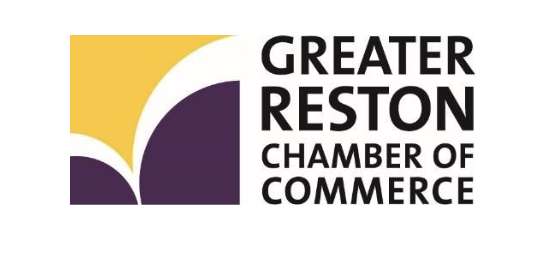
The Greater Reston Chamber of Commerce will host a panel tomorrow morning (Wednesday) to help employers help navigate questions about whether they can require COVID-19 vaccinations as more workers return to offices.
Co-sponsored by the Fairfax County Economic Development Authority and the accounting firm Miller Musmar, the hour-long discussion will be lead by attorney Maureen E. Carr, a shareholder of the law firm Bean, Kinney & Korman. She specializes in employment law and commercial litigation.
According to the event description, Carr will go over the legal rules and implications of businesses requiring their employees to get vaccinated:
Attendees will learn:
- How to comply with the Americans with Disabilities Act (?ADA?), Title VII of the Civil Rights Act (?Title VII?), and other federal, state, and local employment laws.
- The latest Equal Employment Opportunity Commission (EEOC) COVID-19 guidance to address vaccination issues.
- Potential legal consequences of requiring employees to be vaccinated.
The Equal Employment Opportunity Commission issued new guidance on May 28 stating that federal laws do not prevent employers from requiring all employees to be vaccinated in order to enter a physical workplace.
“In some circumstances, Title VII and the ADA require an employer to provide reasonable accommodations for employees who, because of a disability or a sincerely held religious belief, practice, or observance, do not get vaccinated for COVID-19, unless providing an accommodation would pose an undue hardship on the operation of the employer’s business,” the guidance said.
The Washington Business Journal reported yesterday (Monday) that a survey conducted in February by an employment law firm found that less than 1% of responding employers were requiring vaccinations, with another 6% saying they planned to implement a mandate in the future.
However, there are some signs that businesses could be warming up to the idea, particularly after a federal judge dismissed a lawsuit brought by workers over a Texas hospital’s vaccination requirement.
“Employment law attorneys say more businesses are now seriously considering vaccine mandates than they were three months ago,” the WBJ said. “They anticipate the number of employers implementing a mandate will climb in the months to come, with health care providers likely to lead the way.”
The Reston Chamber event will take place from 8:30-9:30 a.m. tomorrow. Registration is required by 8 a.m. the day of the talk to receive the Zoom link. Chamber members can participate for free, while non-members pay a $15 fee.

Fairfax County is slated to send additional funding to businesses that suffered the most during the COVID-19 pandemic, but a Black nonprofit says more can be done.
The Northern Virginia Black Chamber of Commerce has repeatedly been neglected in the development of major business grant programs connected to Fairfax County, the nonprofit’s executive director Sheila Dixon says.
“I would have thought we would have had the opportunity to be at the table,” she said.
The county says it’s committed to working with more than 55 chambers, including minority chambers, multicultural groups, and other community and business support groups in multiple languages with its most recent financial assistance initiative.
A working group of local minority business owners is also trying to make changes and build bridges. A webinar co-hosted by the Community Foundation of Northern Virginia on June 23 seeks to address the needs of minority-owned businesses and how they can be helped.
The group has reached some conclusions and recommendations about equitable recovery across the region and is sharing data, according to the event description. Georgetown University adjunct professor Melissa Bradley, who also co-founded a business mentoring service called Ureeka, is the keynote speaker.
The county has noted these kinds of inequities. A consultant report for the county completed in January detailed how low-income and minority households faced greater difficulties in the workforce, along with women, who have been held back by affordable child care challenges.
Those findings came from working with businesses and a roundtable of minority chambers. The Northern Virginia Black Chamber of Commerce was invited to give input and was also asked to participate in a survey about impacts and recovery, according to the county.
Fairfax County’s Relief Initiative to Support Employers (RISE) program, which gave grants to small businesses and nonprofits, dedicated at least 30% of funding to businesses owned by women, minorities, or veterans. Those businesses ended up with 72% of the approximately $53 million of RISE funding, according to the county.
“We are building on and expanding those efforts,” county spokesperson Wendy Lemieux said in an email, adding that the county is committed to extensive outreach with businesses, particularly ones owned by women and people of color affected by the pandemic.
Unlike the RISE program, the county’s new PIVOT grant program didn’t include any provisions explicitly dedicating funds to often marginalized groups when the Board of Supervisors passed it last week.
Meanwhile, the Black chamber of commerce has shared the PIVOT grant information, but it’s also continuing its own initiatives to help businesses recover from the economic effects of COVID-19.
The organization recently launched an outreach called BTRNow (Build Thriving Returns Now) that provided an online workshop for kid entrepreneurs this spring, held a “Caring through COVID” panel discussion on Monday (June 14), and is currently carrying out a listening tour, among other programming.
Dixon says a lot of the chamber’s members have pivoted amid the pandemic and have been thriving.
But she also noted that there can be disparities, and various Black businesses might be reluctant to apply for resources if they’re skeptical that the support will materialize, even if race is considered as a factor in applications.
“It will be interesting to see if people feel more comfortable,” Dixon said. “We are building up and scaling up our businesses and providing them with the education and the resources that are available within the community.”
Photo via Nathan Dumlao/Unsplash

Arts organizations, museums, and hotels are some of the key targets for Fairfax County’s new initiative to get money to those in need, and informational sessions are providing help.
Approved by the county board last week, the PIVOT program will provide financial grants to small businesses as well as other recipients, and webinars about the effort will begin at 1 p.m. tomorrow (Tuesday) in English and at 2 p.m. Thursday (June 17) in Spanish.
Links to the webinars can be found on the Fairfax County Department of Economic Initiatives website.
“Fairfax County is committed to helping businesses recover from the effects of the pandemic,” Board of Supervisor Chairman Jeff McKay said in a news release. “Through the PIVOT grant we will help those businesses who saw the greatest financial impact regain their momentum so they will be able to thrive in the reopening marketplace.”
Federal funding through the American Rescue Plan Act is supporting the program with $25 million to the county.
Applications can be submitted online through a grant portal that will be open from June 23 to July 9. The money is being administered through the nonprofit Latino Economic Development Center, said Rebecca Moudry, director of Fairfax County Department of Economic Initiatives.
The areas targeted will give relief to food services, lodging, retail, services, amusements, arts organizations, museums, and historical sites.
Potential monetary awards for individual businesses and nonprofits include the following:
- $18,000 for restaurants with less than $3.5 million in annual receipts or gross revenue per establishment
- $12,000 for retail, services, and amusements with less than $3.5 million in annual receipts or gross revenue per establishment
- $10,000 for large arts organizations, museums, and historical sites with annual receipts or gross revenue greater than $100,000
- $5,000 for smaller arts organizations
- $1,500 for food trucks that don’t belong to a restaurant
- $400 per room to hotels with a minimum of 10 rooms
The money will go to businesses that have no more than 500 employees, among other criteria. Nonprofits don’t have an eligibility restriction regarding the number of workers they have.
The new outreach comes after the county ended its Fairfax Relief Initiative to Support Employers (RISE) program last year, distributing around $53 million, one of several financial outreaches by the county.
The PIVOT grants will go to hotels first, then to other organizations if demand is too great. The county could also add to the funding in the future.
Photo via Clay Banks on Unsplash
StarKist Co. is relocating its headquarters from Pittsburgh to Fairfax County.
The food manufacturer known for its tuna is investing $3.6 million to relocate its corporate and administrative headquarters, occupying approximately 24,000 square feet at 1875 Explorer St. in Reston, according to a news release from Gov. Ralph Northam’s office.
“StarKist is proud to make Reston, Virginia our official global headquarters starting in April 2022,” Andrew Choe, president and CEO of StarKist, said in the release.
The 10-story property was developed by Boston Properties in 2008. It’s located in Reston Town Center and totals 253,643 square feet of space.
Northam noted Virginia is now home to 800 corporate headquarters, and Fairfax County “consistently attracts top talent and is well connected to key customer markets and major metro areas.”
Known for its brand mascot Charlie the Tuna, StarKist began as the French Sardine Co. in 1917 by Martin Bogdanovich, who immigrated from Croatia to California, and four associates. The company says it started selling products with the StarKist name in 1942.
The company announced in May it would relocate to Virginia in 2022 but did not indicate at the time where the new site would be. Its Pittsburgh headquarters will close March 31 next year.
A company spokeswoman declined to answer questions about how many employees will be at the new headquarters and the company’s hiring plans, but Northam’s office says SunKist’s arrival in Reston will create 83 jobs.
One job listing posted nine days ago confirmed the Reston location, but another posting from over a month ago listed Washington, D.C. but said the position was in Pittsburgh.
“I am so pleased to thank StarKist for choosing Fairfax County for its new headquarters,” Fairfax County Economic Development Authority President and CEO Victor Hoskins said. “This is a testament to the growing attractiveness of Northern Virginia to a wide variety of industry sectors and companies that know we have the assets and talent base to succeed here.”
StarKist comes as Volkswagen Group of America is also moving its headquarters nearby to Reston Gateway, and Metro’s Silver Line anticipates opening next year.
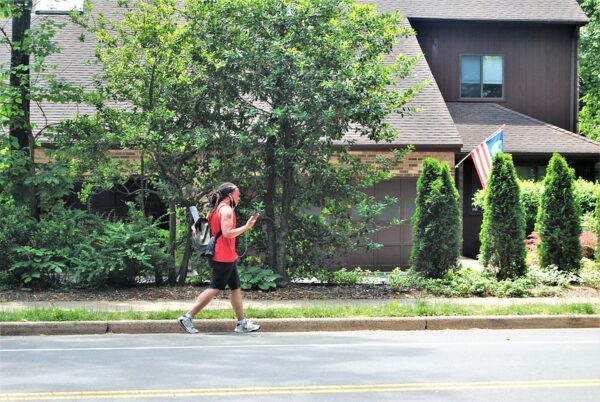
Fairfax County Commemorates COVID-19 Losses — The Northern Virginia Regional Commission held a COVID-19 Remembrance Ceremony at the Fairfax County Government Center last night to recognize the more than 2,350 lives that have been lost to the pandemic. The ceremony streamed live on Board of Supervisors Chairman Jeff McKay’s Facebook page.
Sunset Hills Road Sidewalk Closes for Reston Station Construction — “Beginning yesterday, June 8, the sidewalk on Sunset Hills Rd. near the intersection of Wiehle Ave. will be closed long-term due to the ongoing Comstock construction project. See the map for closure area and alternative pedestrian route.” [Hunter Mill District News]
County Board Approves PIVOT Grant Program — The Fairfax County Board of Supervisors voted on Tuesday (June 8) to create a new grant program that will use $25 million in federal COVID-19 relief funds to support businesses hit hard by the COVID-19 pandemic. The program will focus on the hotel, food service, retail, and arts and culture industries with applications scheduled to open from June 23 through July 9. [Fairfax County Government]
Democratic Primary Favors Moderates over Progressives — Three of the Virginia General Assembly’s most outspoken Democrats lost their seats on Tuesday (June 8), as voters largely opted for more moderate candidates backed by the party’s establishment. The upset incumbents included Herndon Del. Ibraheem Samirah as well as Prince William’s Del. Lee Carter and Del. Mark Levine of Alexandria. [Virginia Mercury]
Reston Chamber Offers Grants to Business — The Greater Reston Chamber of Commerce’s nonprofit subsidiary INCspire Education Foundation is launching a BizMaker Grant Program to “promote inclusive entrepreneurship and a diversity of economic opportunities for businesses committed to job creation and revenue generation within Fairfax County.” [Greater Reston Chamber of Commerce]
Longtime staple Pica Deli has closed after serving the area for three-plus decades, telling customers that it is a victim of the COVID-19 pandemic.
Started in 1987 by Frank Pica, the business was carried on by his son Tyler Pica and Tyler’s childhood friend Caleb Max, but has now shut down.
“People call every day and ask if we’re going to open up,” Max said. “It really just depends on the real estate market and what’s out there.”
A sign on the store’s entrance says that COVID-19 got the best of them, adding that “hopefully, we will be back when the pandemic is over.”
The restaurant is located at 11864 Sunrise Valley Drive, nestled next to office buildings and tucked away off Reston Parkway.
Max says the business stopped after the building changed ownership. According to a county property database, Sunrise Valley Real Estate LLC bought it April 6 for nearly $1.1 million from Pentagon Federal Credit Union.
He told Reston Now he thinks an orthodontist is putting an office there.
Max and Tyler Pica took over the eatery in early 2020 after it was run by Jung Sook Kim for over a decade. A photo even showed the business in 2004 when they were Reston neighbors on a Pica Deli-sponsored little league baseball team.
The business received Paycheck Protection Program or PPP loans for over $17,000 and other assistance, but Max says the exodus of office workers made too great of a deficit.
“The aid was good, but for the restaurants, we were hit so hard,” he said.
If Virginia’s timeline for businesses to reopen had been clearer, Max says he would have closed for much longer than the two-week shutdown that they had in early 2020.
Pica Deli could continue in the form of a food truck in the interim, Max says, but he wants to make sure they’re well past the pandemic before returning to the food industry.
As the spread of COVID-19 abates, Fairfax County is exploring a variety of ways to help local businesses recover from the pandemic’s economic impacts.
In addition to creating a new grant program that will provide financial relief to small businesses and nonprofits, the Board of Supervisors voted today (Tuesday) to license and pursue a trademark for a new “Made in Fairfax” logo that businesses could use to indicate that their products were made in the county.
The board’s vote gives the Fairfax County Department of Planning and Development authority to execute licensing agreements that would let local businesses include the logo in their marketing. The county will also apply for a trademark registration from the Commonwealth of Virginia, which would enable the county to protect its brand.
Officials say the logo will be a useful promotional tool not just for the businesses that use it, but also for the county as it seeks to build a vibrant local economy.
“This is an innovative approach,” Lee District Supervisor Rodney Lusk said. “This is how we differentiate ourselves. This is how we make Fairfax County a leader in new areas as well.”
The Made in Fairfax program launched in June 2018, growing out of a Small-Scale Production Initiative that the county started to identify ways to better support and bring visibility to local manufacturers and entrepreneurs.
Initially, the program focused on revising Fairfax County’s comprehensive plan and zoning code to make them friendlier to what the county calls “maker” businesses — manufacturers that work on a small scale to produce anything from food and beer to clothing and furniture.
Drafted during the early stages of the Zoning Ordinance Modernization Project but as a separate effort, the new zoning rules permit production businesses in most commercial zones within the county, instead of restricting them to industrial areas, according to Doug Loescher, the program manager for Fairfax County’s Community Revitalization Office.
“We recognized that we probably had small-scale production businesses in Fairfax County, but they were not very visible,” he said. “…Our hope was that, by being in commercial shopping centers and retail areas, they can be more visible, and we can support them better.”
The county also created a Made in Fairfax network and directory that now consist of more than 125 businesses. About half of them provide food products, but there are also woodworking shops, candle makers, and even a blacksmith.
While Loescher says his office hopes to also work with larger Fairfax County-based businesses, Made in Fairfax primarily concentrates on small businesses that are more isolated and lack their own marketing resources. Most participants are working solo or have fewer than 10 employees.
The county developed the new logo with the help of a committee of maker businesses as part of a larger branding effort to promote the Made in Fairfax Network.
For the most part, the only criterion for businesses to be eligible to license the logo will be that they need to have a production facility located in Fairfax County. The county also reviews makers that register for the network to ensure “there’s no problems with what they’re producing, that it’s not illegal or improper in some way,” Loescher says.
Though the Made in Fairfax program was established prior to the pandemic, Loescher says the past year has illustrated why it’s necessary for the county.
“There’s a recognition by people about how important it is to actively support small, independent, local business enterprise, and this is just another way of doing it,” Loescher said. “It’s a fairly small program, but I think symbolically, we hope it communicates to the business sector and to the community that we value these businesses and that we want to support them.”
Photo courtesy Fairfax County
Fairfax County is developing a new grant program intended to help small businesses and nonprofits recover from the COVID-19 pandemic, but in a change from previous relief efforts, this program will first award money to hotels before determining recipients in other industries by lottery.
If it’s approved by the Fairfax County Board of Supervisors today (Tuesday) as scheduled, the proposed PIVOT Business Recovery Grant program will be supported by $25 million in federal funds from the American Rescue Plan Act passed by Congress in March.
“The estimated 48,200 jobs lost in Fairfax County through December 2020 were heavily concentrated in the food service, hospitality and retail sectors,” county staff said in the agenda for today’s meeting, which starts at noon.
Staff added that approximately 50% of job losses in the county in 2020 were lodging, food services, retail, arts, entertainment, and other services.
But why hotels should get first dibs on the new money over restaurants and other affected businesses remains unclear. A county spokesperson says it’s a draft and subject to change.
The background provided in the agenda item does note that Northern Virginia’s lodging industry has been struggling in comparison to the rest of the state:
According to the global hospitality data firm STR, Virginia lodging businesses experienced a 2020 monthly average 50.5 percent decrease compared to 2019 — totaling more than $2.2 billion in lost revenue. Northern Virginia is the only region in Virginia that continues to decline and as of March 2021 has the lowest revenue per room in the Commonwealth.
The plan says hotels with at least 10 rooms will be eligible for a grant. Businesses in the program could get the money if they have 500 employees or less and their principal place of business is in the county.
Hotels are not the only industry hit hard by the pandemic. An International Monetary Fund report shows that in the U.S., the pandemic at one point led to a crash in restaurant bookings as well as steep drops in flying and driving.
Small business owner Caleb Max, who acquired Pica Deli in Reston early in 2020, says it’s good that another part of the hospitality sector would be helped. While restaurants have gotten a boost from relief funds and promotional efforts like restaurant weeks, he said hotels seem to have been left out.
Max shared his thoughts even as his own business has became a victim of COVID-19, according to a handwritten sign on the restaurant’s door announcing the business’s closure.
Max received Paycheck Protection Program money to the tune of $17,241 for his eatery as well as other assistance, saying the money helped but still left a significant deficit with office workers no longer around as consistent customers.
“The aid was good, but for restaurants, we were hit so hard,” Max said.
The new business assistance plan comes after Fairfax County distributed around $52.6 million to small businesses and nonprofits last year through the Fairfax Relief Initiative to Support Employers (RISE) program. Recipients had to have less than 50 employees across all locations.
The RISE program, which helped over 4,800 recipients, dedicated at least 30% of the money to women-, minority- and veteran-owned businesses, which ended up with 72% of the funding, according to the county.
That aligns with the findings of a consultant report completed in January that said the county should target further assistance to help those most affected by the pandemic. It detailed how low-income and minority households faced greater difficulties in the workforce, along with women, who have been held back by affordable child care challenges.
Photo via Febrian Zakaria/Unsplash
(Updated at 2:10 p.m. on 5/27/2021) Beanstalk, an indoor vertical farming start-up, is putting down roots in Herndon with plans to invest more than $2 million to open a facility and farm this fall.
The Virginia-based company is expanding and opening a “scaled-up version” of their existing farm in the Lorton/Springfield area right off of Herndon Parkway and near the impending Herndon Metro station, Beanstalk co-founder Michael Ross writes Reston Now in an email.
The Herndon location will have research, growing, and package operations.
“This new facility will produce the equivalent of over 50 acres of traditional farmland and allow us to expand into more local grocery stores, farmers’ markets, and restaurants,” said Ross, who founded Beanstalk with his brother Jack.
The company grows pesticide-free leafy greens and herbs year-round using robotics and hydroponic — or soil-less — growing technology. It says it saves space by growing in layers and vertically as opposed to horizontally.
Beanstalk sells its salad mixes and herbs at grocery stores, local farmers markets, and online.
Jack Ross was selected by Virginia for a STEAM catalyst award back in 2018 for his development of an automated indoor growing production system. The technology allows Beanstalk to “produce food four times as efficiently as traditional hydroponic farming,” according to a press release from Virginia Gov. Ralph Northam.
The brothers opened their 3,000 square-foot Springfield/Lorton facility in 2018, and the company expects to have annual sales of over $5 million in the next three years.
“We have created a new technology that produces better tasting and more nutritious vegetables, herbs, and fruits than what are available today,” Ross said. “Our farms are also sustainable as they consume 95% less water, have zero chemical run-off, and are over 100 times more productive use of land.”
The company’s co-founders are in their 20s and both were raised in Alexandria, went to high school in D.C., and played youth sports across the region.
“I particularly spent a lot of time in Herndon and Reston in high school, which is how I originally got to know the area through events like the Herndon Festival,” said Ross, who studied aerospace engineering in college.
He tells Reston Now that they evaluated “dozens of cities” in the D.C. area for their expansion but decided on Herndon because of the town’s “incredible community” and prioritzation of sustainability.
“Herndon is a very unique place within Northern Virginia in that it feels like a small, close-knit town with all the benefits of a larger city,” he said.
Beanstalk is expected to create 29 jobs in Herndon, some of which are already open for hiring.
Positions currently open in Herndon include a director of research and a senior electrical engineer. Ross notes that other jobs will be available soon in engineering, research, and operations, and the company will be looking for farmers later this year.
“We look for people from all backgrounds who want to bring locally grown food to their community and are curious, ambitious, and skilled,” Ross said.
Beanstalk is receiving financial support from both the state and Fairfax County in the form of grants that total $200,000.
As expected, local leaders say they are thrilled that Beanstalk decided Herndon is the place for them to grow.
“We are always looking for innovative investments to move our economy forward in Fairfax County,” Fairfax County Board of Supervisors Chairman Jeffrey McKay said in the governor’s press release. “Beanstalk’s new facility will not only bring new jobs to the community, but it also is a creative solution to using advancements in technology to increase access to fresh food options.”
Herndon Mayor Sheila Olem also welcomed the Ross brothers and Beanstalk to town.
“Theirs is exactly the kind of innovative, jobs-producing business we are looking to attract to our town’s commercial sector, and we applaud their application of technology toward provision of healthy, locally-grown produce,” she said.
Beanstalk’s mission is not only to grow fresh produce using new, more-efficient, sustainable technology, but to provide food at its freshest, Ross says.
“By growing in a farm within the community, we deliver food at peak freshness, which ensures all the taste and nutrition of the food is there when you take your first bite,” he said.
Photo courtesy Michael Ross
A new Korean fried chicken restaurant will open in North Point Village Center this summer.
Bbq Chicken at 1432 North Point Village Center in Reston is targeting a July 4 opening, a restaurant representative tells Reston Now. Build out is currently about 75% finished.
The location was previously a Jerry’s Subs that closed in September 2019.
The restaurant is part of a national franchise with close to 2,000 locations across the country, but this is the first one in the Reston/Herndon area. There is a location in Falls Church.
Several more locations of bbq Chicken are being planned for the area, including in Herndon and Ashburn, by the end of the year, the restaurant representative says.
The franchise specializes in Korean fried chicken with menu options for spicy, honey garlic, and more traditional Korean flavors like galbi (sweet with sesame seeds) and gang-jeong (cinnamon and spicy).
The bbq Chicken spokesperson says the company is expanding the number of locations in Northern Virginia, because Korean fried chicken has traveled well and can be easily prepared for pick-up and delivery.
They chose North Point Village as the restaurant’s introduction to Reston because the shopping center provides substantial parking with good access for delivery drivers.
The shopping center also will have a sushi restaurant opening in it in November of this year. Earlier this year, Christie-Adam Salon and Spa opened, replacing another hair salon.
North Point Village Center is owned by Lerner Retail, whose portfolio includes the to-be-redeveloped Spectrum at Reston Town Center.
North Point Village Center opened in 1993 and was the last of Reston’s five village centers to be built.
Photo via bb.q Chicken US/Instagram


